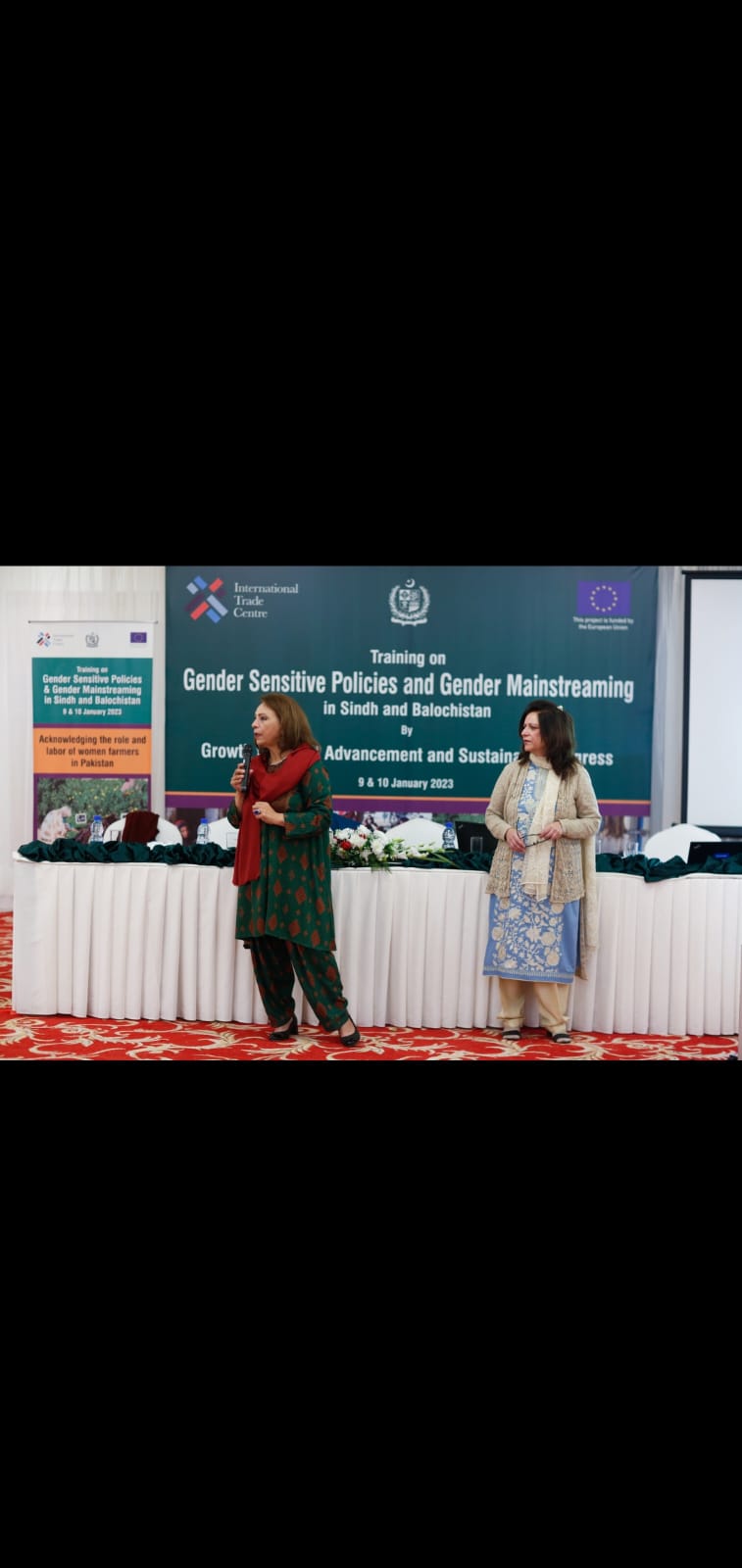ISLAMABAD, Jan 10 (APP): Growth for Rural Advancement and Sustainable Progress (GRASP) a project funded by the European Union and implemented by International Trade Centre (ITC) here on Tuesday organized a two-day training for senior officials from the department of agriculture, food, livestock, planning and development, industries and commerce, investment, and women development from Sindh and Balochistan governments.Women’s integration in the public sphere continues to be challenging despite laudable progress on important indices e.g., in higher percentages of women in higher education and civil service. Although the policies strive to be gender inclusive, translating them into projects and concrete deliverables is difficult. Women’s economic empowerment is complex especially when the economy is under pressure. Women producers and entrepreneurs in Pakistan face wide-ranging and complex challenges in accessing markets and expanding their businesses.
The objective of the training was to provide clarity on the application of anti-sexual harassment laws to ensure safe workplaces for equal participation, deliver solutions on how to integrate gender into development policies, based on good practices. The training also focused on providing a new perspective on how trade impacts women’s economic empowerment, by utilizing gender-related data for effective and inclusive policies. Lead policymakers were encouraged to provide innovative solutions for addressing the issues Pakistani women confront through gender-sensitive policies and their implementation.
The training also analyzed Sindh Women Agriculture Act (2019) and Balochistan Agriculture Policy 2021, Livestock Policy and Strategy 2020-2039, and Women Empowerment Policy 2020-2024 through a gender equity lens.
Haroon Sharif, Former Minister of State and Chairperson, Board of Investment gave a session, addressing the policy and implementation challenges and their remedies based on his experience in the development and finance fields. Dr Farzana Bari, an eminent women’s rights scholar-activist explained the sexual harassment law and why it is important to ensure a secure environment in the workplace as well as the public sphere. Rafiullah Kakar, Member, Social Sector & Devolution Planning Commission of Pakistan gave a session on the economic empowerment of youth in Pakistan, particularly Sindh and Balochistan.
GRASP is working in 22 districts of Sindh and Balochistan to support gender inclusive income and employment generation, enhanced productivity and profitability of SMEs involved in primary production, service provision and value addition in and around selected clusters of production.






